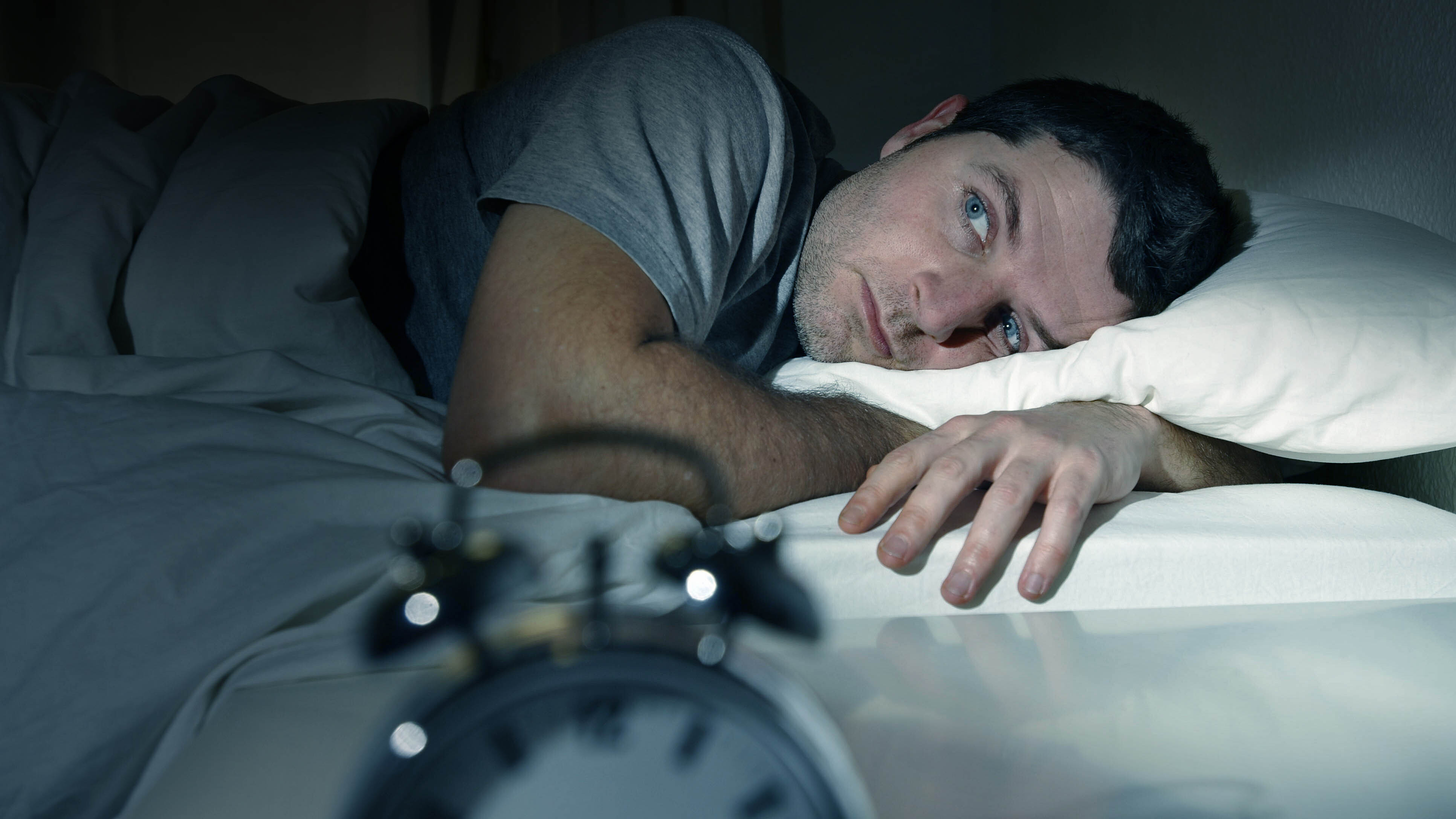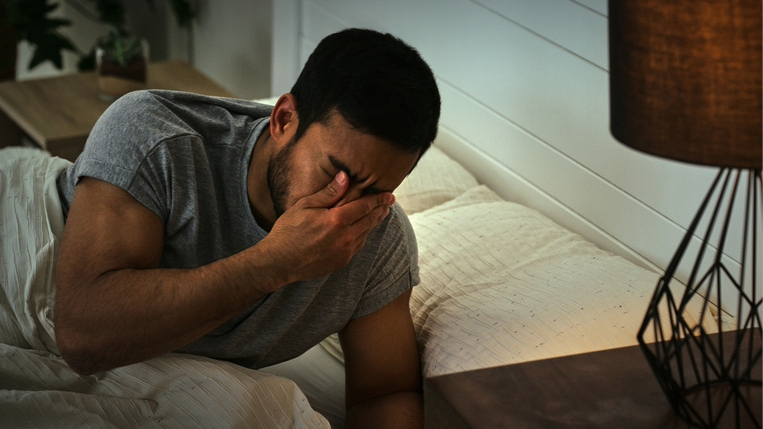Three nights of poor sleep can increase your risk of heart disease, study shows
Swedish study indicates that four hours of sleep per night for three nights is enough to increase risk of heart disease

The short term effects of sleep deprivation are well documented; cognitive fog, reduced alertness and an impaired ability to regulate emotions, to name just a few. Now, a Swedish study has shed more light on the potential long term effects of sleep loss.
According to new research from Uppsala University in Sweden, clocking up approximately four and a half hours of sleep for three nights in a row is enough to increase your risk of heart disease. Scientists discovered that three nights of poor sleep results in changes in the blood, which in turn elevates the risk of cardiovascular disease.
Key takeaways from study
- Approximately four and a half hours of sleep for three nights triggers changes in blood associated with cardiovascular disease
- Study followed the sleep and wake patterns of 16 healthy males in a lab controlled environment; half getting eight hours sleep, the other getting around four and a half
- 30 minutes of high intensity exercise after poor sleep shown to promote healthy proteins associated with brain and heart health
The study was conducted in a lab controlled environment where the sleep and wake patterns of 16 healthy young males were tracked over a three day period.
The participants were split into two groups; one getting eight hours of sleep per night and the other group restricted to four hours and 25 minutes.
Blood samples measured the levels of 90 inflammatory proteins in the blood, of which elevated levels can result in poor cardiovascular health, such as atrial fibrillation (irregular heartbeat), stroke, and coronary heart disease over time.
While daily 30 minute sessions of high intensity exercise produced positive proteins associated with brain and heart health, exercise alone is unable to offset the ill effects of long term sleep deprivation.
How sleep deprivation can result in poor heart health among the young

The association between sleep deprivation and poor heart health isn't new. However, researchers at Uppsala University were keen to focus on the ill-effects of sleep loss on younger and otherwise healthy participants.
“Many of the larger studies that have been done on the link between sleep deprivation and the risk of cardiovascular diseases have generally focused on slightly older individuals who already have an increased risk of such diseases," explains Jonathan Cedernaes, a physician and study lead.
"That is why it was interesting that the levels of these proteins increased in the same way in younger and previously perfectly healthy individuals after only a few nights of sleep deprivation," he adds.
"This means that it’s important to emphasise the importance of sleep for cardiovascular health even early in life.”
Exercise helps mitigate effects of sleep deprivation — but can't offset it entirely
Throughout the duration of the study researchers screened the blood of the participants three times a day; once in the morning, once in the evening and once after 30 minutes of high intensity exercise.
This screening measured the levels of approximately 90 inflammatory proteins which are associated with poor cardiac health. Levels of these proteins were higher among the sleep deprived cohort.
While exercising resulted in an increase in positive proteins in the blood, such as interleukin-6 and BDNF, both of which are associated with brain and heart health, Cedernaes is keen to point out that exercise alone isn't enough to offset the ill effects of sleep deprivation.

“With this study, we have improved our understanding of what role the amount of sleep we get plays in cardiovascular health," says Cedernaes.
"It’s important to point out that studies have also shown that physical exercise can offset at least some of the negative effects that poor sleep can cause. But it's also important to note that exercise cannot replace the essential functions of sleep.”
How to sleep for longer
This study helps us better understand the relationship between sleep quality and heart health. However, if getting adequate rest is something you struggle with, there are certain lifestyle habits that can help you get the sleep duration you need.
1. Create a consistent sleep routine
Establishing a consistent sleep and wake routine is one of the healthiest things you can do for sleep quality.
Waking and sleeping at the same time every day (yes, even on the weekend) helps your circadian rhythm, your body's internal clock, function optimally.
An established circadian rhythm means you'll feel tired naturally as you approach bed time and feel refreshed upon waking.
2. Get plenty of exercise
We've learnt that exercise can help improve cardiac function, but regular exercise can also improve your sleep quality.
Exercise releases mood-boosting hormones that relieve stress and anxiety, which are natural enemies of sleep.
Exercise can also increase the amount of deep sleep you clock up, due to its restorative benefits.
3. Develop a nighttime routine

Just like it does for infants, a nighttime routine for adults helps us wind down before bed.
A nighttime routine might involve reading in bed, journaling or having a warm bath — the important thing is that you find it relaxing.
Loosely following the same sequence of events before bed helps to signal to your brain and body that the time for sleep is approaching and that it's time to wind down.
4. Avoid stimulants close to bedtime
Anything stimulating too close to bedtime is a natural barrier to sleep. Whether it's drinking a cup of coffee too late in the day, working right up to bed time or scrolling on your phone late into the night, anything that stimulates you physically or mentally should be avoided in the run up to bed time.
5. Create a relaxing sleep environment
Creating a calm and inviting sleep environment can make or break your sleep quality. It starts with choosing the best mattress for your sleep needs, but also includes ensuring your bedroom is the right temperature for sleep, is dark and clutter free.
The place where you sleep needs to be an inviting and relaxing space, so that means leaving anything that disrupts that at the door (your to-do list, for example.)


Nicola is the Sleep Editor at Tom’s Guide, where she helps steer the mattress and sleep content published on Tom’s Guide, including our Best Mattress for Back Pain buying guide. With a career in journalism spanning the best part of two decades, Nicola brings experience to the team and the knowledge of what makes a great article, whether that’s a how-to mattress cleaning feature, a deep dive into melatonin gummies, or an in-depth mattress review. As a sleep editor, few better understand how important a decent mattress is to the overall quality of our sleep, and precisely how our sleep impacts our physical and mental health. As well as tackling the vast topic of sleep, Nicola joins the raft of expert mattress specialists at Tom’s Guide, who test and compare a wide range of mattresses in order to guide readers towards the very best options on the market.
You must confirm your public display name before commenting
Please logout and then login again, you will then be prompted to enter your display name.
 Club Benefits
Club Benefits





